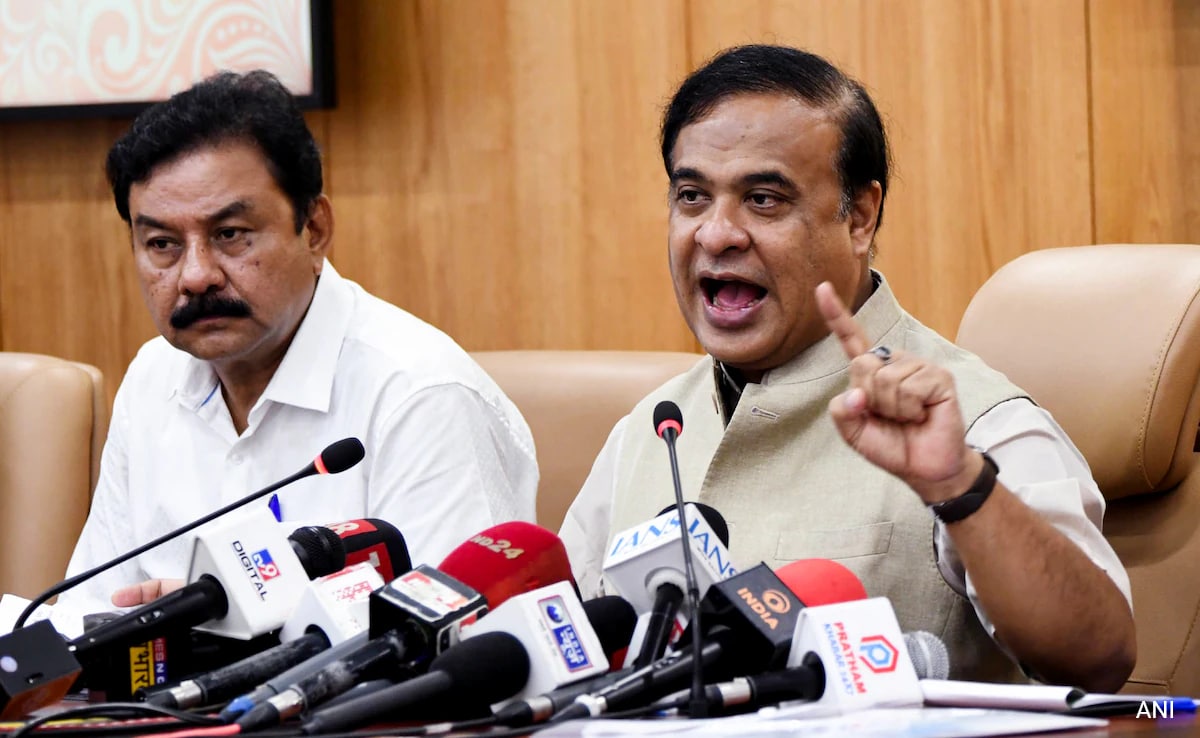

Assam Chief Minister Himanta Biswa Sarma has refuted media reports suggesting that his government has instructed Foreigners Tribunals (FTs) to drop cases against non-Muslims who entered the state before 2015. Sarma clarified that the government has not issued any new directives beyond what is already outlined in the Citizenship Amendment Act (CAA).
The Assam government had earlier directed the Border Police, district authorities, and Foreigners Tribunals (FTs) to halt proceedings against individuals from six non-Muslim communities—Hindus, Christians, Sikhs, Buddhists, Jains, and Parsis—who entered India on or before December 31, 2014. This directive was based on the Citizenship Amendment Act (CAA). The CAA, which has been operational since March 2024, offers a fast-track path to citizenship for non-Muslims who entered India before the end of 2014 due to religious persecution.
Sarma stated that the policy is intended to protect religious minorities fleeing persecution, emphasizing that such individuals should not be subjected to legal proceedings under the Foreigners Act. He said, "We're ensuring they are not unnecessarily prosecuted," while acknowledging the low number of citizenship applications.
The directive, issued by Assam's Home and Political Department on July 5, instructs the Assam Border Police to stop referring cases of Hindus, Sikhs, Buddhists, Jains, Parsis, and Christians from Afghanistan, Pakistan, and Bangladesh to Foreigners Tribunals, provided they arrived before the 2014 cut-off date. Instead, these individuals are to be directed to apply for Indian citizenship under the CAA through the designated portal, with applications handled by the Union Government.
The decision to potentially drop cases against non-Muslims is grounded in the CAA, marking the most assertive implementation yet of the law's religiously selective framework and signals a fundamental shift in Assam's approach to citizenship adjudication. Foreigners Tribunals have been instructed that they are “not supposed to pursue cases of foreigners belonging to the six specified communities…who had entered into Assam on or prior to 31.12.2014”. District Commissioners and police heads have been asked to hold immediate meetings with tribunal members and submit periodic action-taken reports on the withdrawal of such cases.
Critics have argued that the CAA-NRC framework is less about identifying undocumented migrants and more about institutionalizing religious discrimination in India's citizenship law. In August 2019, Assam released the final NRC list, excluding over 19 lakh people. According to CM Sarma's own admission in March 2024, this excluded group included five lakh Bengali Hindus, two lakh Assamese Hindus, and 1.5 lakh Gorkhas. The BJP's stance has been that Hindus left out of the NRC would be protected through the CAA, but for Muslims similarly excluded from the NRC, no parallel legal shield exists.